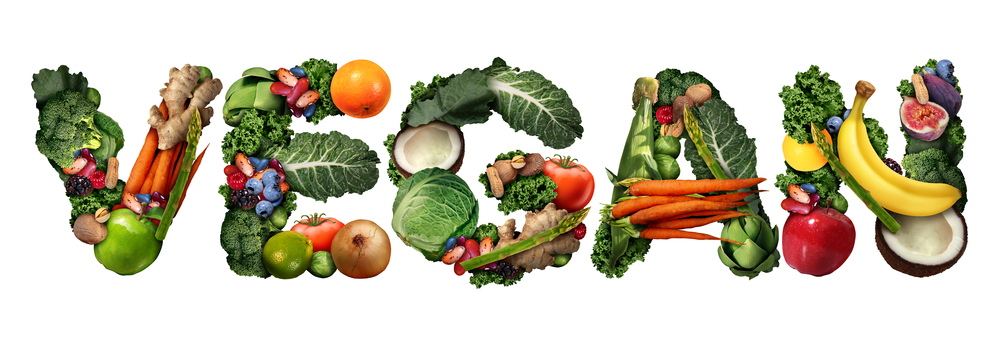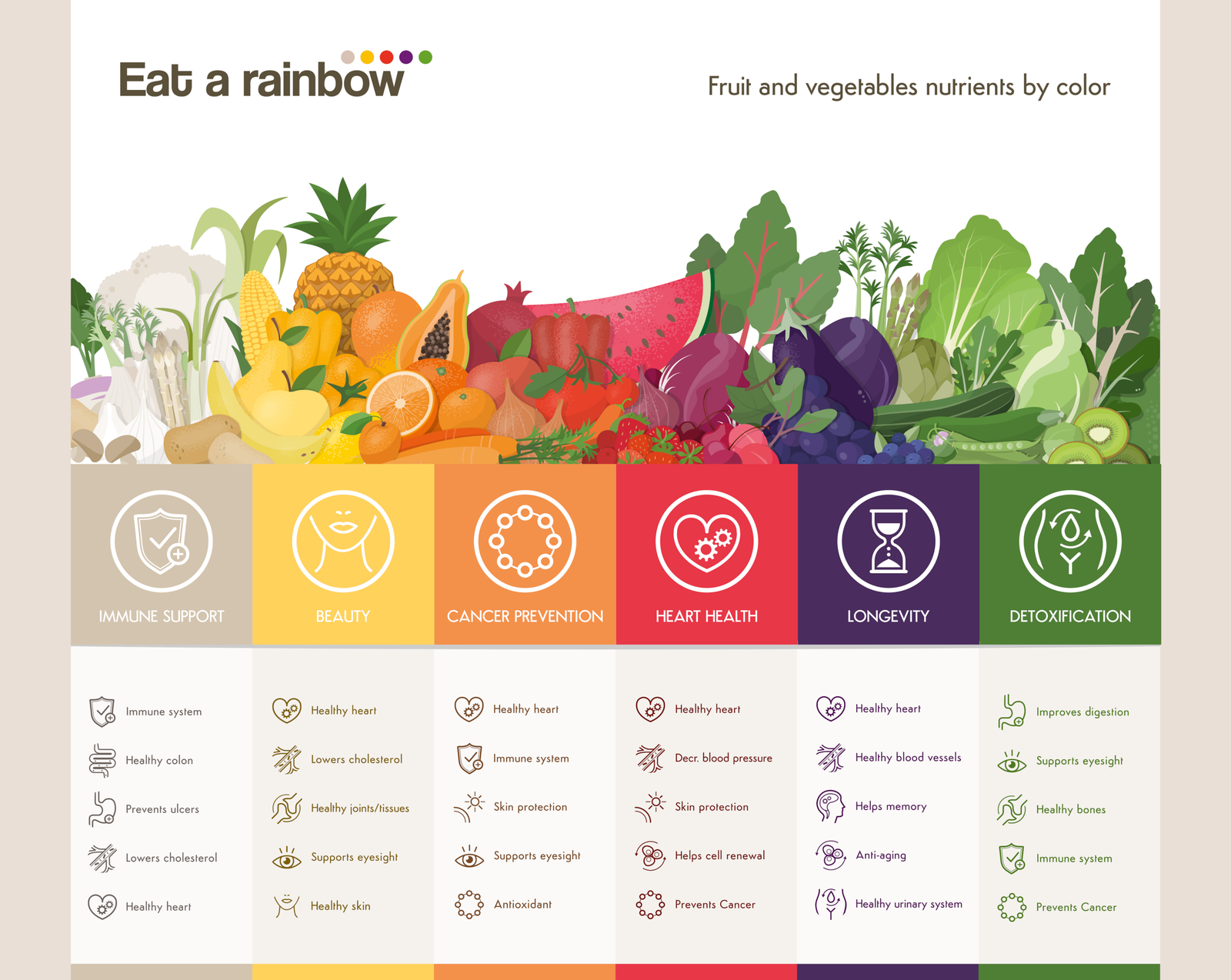Vegan Globetrotter is supported by our audience. When you purchase through one of our links, we may earn a small affiliate commission. As an Amazon Associate I earn from qualifying purchases. Your cost is not affected.
==================
Welcome to “Vegan Cultures, Generations of Veganism: A Brief Overview.” In exploring the vegan movement’s rich tapestry, we’ll journey through time and across continents to uncover the diverse cultures and generations that have embraced the philosophy of veganism. From ancient roots to modern trends, this overview provides a factual and enlightening perspective on how veganism has evolved, influenced societies, and continues to thrive in today’s world. So, grab your virtual passport because we’re about to embark on an eye-opening tour of vegan cultures and the enduring legacy of generations committed to a compassionate and sustainable way of life.
Vegan Cultures, Generations of Veganism: A Brief Overview
Most vegans have heard that they can’t live without meat consumption. What about protein? Won’t you starve? The truth is, vegan cultures with generations of veganism prove that the lifestyle is not only possible, but it holds incredible health benefits.

Veganism has grown in popularity in recent years, with more people choosing to adopt a plant-based lifestyle for various reasons, including health, animal welfare, and environmental sustainability. The movement dates back to ancient times, with early records of vegetarianism in India and the Mediterranean regions. The term “vegan” itself was coined in 1944, defining individuals who choose to abstain from animal products completely.
Throughout history, ethical and philosophical considerations have heavily influenced the development of veganism, with many advocates emphasizing the importance of compassion and respect for all living beings.
Over time, the vegan diet has evolved and diversified, offering a wide range of plant-based options that can cater to individual tastes and nutritional needs. In today’s modern age, veganism extends beyond just dietary choices, with many people integrating vegan principles into various aspects of their lives, such as clothing and beauty products.
Key Takeaways
- Veganism has ancient roots and has evolved from vegetarianism to a broader lifestyle movement.
- Ethical considerations are significant in adopting veganism, promoting compassion and respect for all living beings.
- Health considerations play a significant role in veganism for many people. It’s thought that the original humans were vegans.
- The vegan lifestyle encompasses more than just dietary choices; many individuals incorporate vegan principles into other aspects of their lives.

Origins of Veganism
Philosophical Roots
The concept of veganism has its roots in ancient philosophies, with the Greek philosopher Pythagoras being one of the earliest proponents of a plant-based diet. Pythagoras believed in the transmigration of souls and considered eating animals to violate this principle. The Pythagoreans, followers of his teachings, were known for their vegetarian lifestyle. The Roman poet Ovid also supported this idea by writing about the Pythagorean ethic in his famous work, “Metamorphoses.”
In ancient Greece, the practice of non-violence, or ahimsa, was a key element of many philosophers’ belief systems. Ahimsa embodies the notion of causing no harm to other living beings and was extended to include animal life. This idea of non-violence laid a foundation for the future development of veganism as a lifestyle and ethical choice.

Religious Influences
Several religious traditions also played an essential role in shaping the early development of veganism. In particular, religions originating in India, such as Jainism, Hinduism, and Buddhism, strongly emphasized ahimsa, leading many followers to adopt a vegetarian lifestyle.
Jainism, one of the oldest Indian religions, is known for its extreme adherence to non-violence. Jains believe that causing harm to any living being, including animals, creates negative karma. As a result, Jains are traditionally vegetarian and often avoid even consuming root vegetables to minimize harm to other life forms.
While not strictly vegetarian, Hinduism also promotes the concept of ahimsa and encourages its followers to consume a primarily plant-based diet. Many Hindus abstain from eating meat, especially beef, due to the sacred status of the cow in Hindu tradition.
Buddhism, founded by Siddhartha Gautama, also incorporates the principle of non-violence. Although not all Buddhists are vegetarian, the religion teaches compassion for all living beings and encourages followers to minimize harm, which often leads to a plant-based diet.
In conclusion, the origins of veganism can be traced back to ancient philosophical and religious roots. The teachings of Pythagoras, the practice of ahimsa in ancient Greece, and the influence of Jainism, Hinduism, and Buddhism all contributed to the development of veganism as a lifestyle and ethical choice that continues to expand and grow today.

Evolution of Veganism
Early Vegan Societies
Modern Veganism has its roots in ancient Indian and eastern Mediterranean societies. People began avoiding animal products for ethical, religious, and health reasons. They believed in nonviolence towards animals, preserving nature, and various spiritual benefits from eliminating animal-based foods. As the lifestyle evolved, it catered to diverse beliefs and motivations across the globe.
In 1944, Donald Watson coined the term “vegan” and founded the Vegan Society, with the goal of promoting a diet free from animal products, separate from the Vegetarian Society. November 1st, the birthday of the Vegan Society, is now celebrated as World Vegan Day.

Modern Developments
Throughout the years, veganism transitioned from a niche movement to the mainstream as awareness about animal rights, environmental issues, and health concerns grew. Modern developments in vegan food production have led to the creation of delicious meat and dairy substitutes, making it easier for people to adopt this lifestyle.
Growing vegan communities now promote ethical and eco-conscious living, debunking myths and supporting new vegans. This lifestyle movement aims to protect animals, promote health, and minimize the environmental impact of our diets.
As the vegan movement gained momentum, concerns regarding adequate nutrient intake, particularly vitamin B12, were addressed. It is widely known that B12 must be supplemented in a plant-based diet; however, fortified foods and supplements are now readily available for vegans to meet their nutritional requirements.
Big Veganism’s rise in popularity has led to significant market shifts, with many businesses embracing veganism and creating plant-based alternatives to cater to this growing demographic. As a result, veganism has become an influential and widespread lifestyle movement in the 21st century.

Ethical and Philosophical Considerations
Compassion for Animals
Veganism is deeply rooted in the philosophy of compassion for animals. The core principle of this lifestyle is to avoid causing harm or suffering to animals as much as possible. Vegans abstain from consuming animal products such as meat, eggs, milk, and honey to stand against the exploitation of animals. The Vegan Society defines veganism as “a philosophy and way of living which seeks to exclude—as far as is possible and practicable—all forms of exploitation of, and cruelty to, animals.”
The basis of this ethical stance is that animals, like humans, deserve to be treated with respect and dignity. Advocates for animal rights argue that it is unjust and morally wrong to cause unnecessary suffering to sentient beings. This is why many vegans support the animal rights movement, which aims to end the use of animals for food, clothing, research, and entertainment.
Factory farming is a primary focus of concern within the animal welfare aspect of veganism. These large-scale farming operations often involve inhumane treatment and living conditions for the animals, highlighting the need for more compassionate farming practices.

Environmental Advocacy
Along with animal compassion, veganism is also strongly tied to environmental concerns. Many people switch to a plant-based diet not only for ethical reasons but also because animal agriculture significantly impacts the environment. For instance, factory farming contributes to deforestation, climate change, and the emission of greenhouse gases.
The production of animal products requires vast amounts of resources including land, water, and energy. According to author Jonathan Safran Foer, switching to a vegan diet can significantly reduce an individual’s carbon footprint and help in conserving vital resources.
A major environmental concern of animal agriculture is its contribution to climate change. The United Nations Food and Agriculture Organization estimates that livestock accounts for 14.5% of all human-induced greenhouse gas emissions. Reducing the consumption of animal products and promoting plant-based diets can therefore play a crucial role in mitigating the effects of climate change.
Ethical and philosophical considerations form the foundation of veganism, with compassion for animals and environmental advocacy as two main pillars of the lifestyle. By rejecting the use of animal products, vegans embody a commitment to justice, animal welfare, and the preservation of the environment for future generations.

The Vegan Diet
Nutritional Overview
The plant-based vegan diet focuses on consuming fruits, vegetables, grains, nuts, and legumes. Vegans abstain from consuming animal products like meat, dairy, and eggs to avoid contributing to animal suffering and environmental degradation. For this reason, they opt for plant-based foods that are rich in nutrients and have a lower environmental impact.
A well-planned vegan diet can provide adequate nutrients such as iron, protein, zinc, calcium, vitamins, and more. However, vegans must also be mindful of certain nutrients like vitamin B12, which is predominantly found in animal-based products. To avoid deficiencies, vegans can consume fortified foods and vitamin supplements.
A vegan diet has numerous health benefits, such as reducing the risk of heart disease and type 2 diabetes. Weight loss is also a common result of embracing a vegan lifestyle, as plant-based foods are generally lower in fat and calories.
Dietary Practices Across Cultures
The vegan diet has evolved over generations, originating from various cultures around the world. Some diets that share similarities with veganism include the Mediterranean diet and Japanese cuisine, both of which emphasize a plant-based approach and minimal meat consumption.
Indian Culture
In the Indian subcontinent, plant-based diets have been followed for centuries due to religious and cultural beliefs. The abundance of spices and diverse ingredients in Indian cuisine allows for an array of vegan dishes that incorporate essential nutrients, such as iron, zinc, and calcium.
Meat Substitutes
The rise of vegan culture has led to the development of innovative plant-based food products like the Beyond Burger. Unfortunately, most of these products are heavily processed and don’t provide the health benefits of vegan diets.
International Cuisines
Also, the increasing popularity of vegan restaurants that offer diverse cuisine styles. Countries like France, once known for their meat-heavy cuisine, have also experienced a growth in veganism as people seek out healthier and more environmentally friendly options.
The Japanese culture, along with other Asian cultures, lends itself easily to the plant-based vegan lifestyle. In fact, many Japanese families enjoy veganism for most of their lives.
Incorporating various international flavors into a vegan diet can enhance the overall nutritional value and ensure balanced consumption of essential vitamins and minerals such as vitamin B12, vitamin D, and calcium. By embracing a variety of plant-based cuisines, vegans can enjoy a fulfilling and exciting culinary experience while maintaining a healthy and eco-friendly lifestyle.

Vegan Lifestyles
Personal Health
The vegan lifestyle has been gaining popularity lately, likely due to its numerous health benefits. A vegan diet consists of plant-based foods and excludes animal products such as meat, dairy, eggs, and honey.
Many individuals who choose a vegan lifestyle do so for personal health reasons, and some research studies support claims that a vegan diet can benefit health. Many vegans believe that avoiding animal products can mitigate the risk of various chronic diseases and improve overall well-being.
Different variations of veganism exist, such as raw veganism and strict vegetarianism. Raw vegans prioritize consuming unprocessed and uncooked plant-based food, while strict vegetarians follow an even stricter plant-based diet, often avoiding processed foods, refined sugars, and other unhealthy substances.
Beyond Diet: Lifestyle Choices
Veganism goes beyond just a plant-based diet; it incorporates a broader cruelty-free philosophy. Vegans generally strive to minimize the suffering and exploitation of animals in all aspects of life, from clothing choices to personal care products. They avoid materials like leather, wool, and silk, opting for synthetic or plant-based alternatives. Moreover, vegans use cruelty-free products that have not been tested on animals.
By adopting a vegan lifestyle, individuals can better align their consumption habits with their ethical beliefs about animal rights and welfare. Furthermore, a vegan lifestyle allows people to critically consider the consequences of their actions and make choices consistent with their values and philosophical beliefs.
The Eco-Friendly Side of Veganism
Another reason some people adopt a vegan lifestyle is its ecological benefits. Veganism can significantly reduce the environmental impacts caused by the consumption of animal products. Historically, our ancestors mainly relied on plant-based foods, which demanded fewer resources than the modern human diet.
Veganism helps reduce the carbon footprint by lowering greenhouse gas emissions associated with animal agriculture. Also, it can decrease the demand for land, water, and energy required to produce meat and other animal-based foods. By choosing a plant-based diet, vegans preserve the environment and promote sustainability for future generations.
Embracing Veganism: A Tapestry of Compassion, Culture, and Generations
In concluding our exploration of veganism’s multifaceted journey, we’ve traversed a landscape rich in cultural diversity, historical significance, and generational evolution. From its ancient roots driven by ethical ideals to its contemporary resurgence as a holistic lifestyle, veganism has transcended mere dietary choices. It’s a global movement that embraces compassion, sustainability, and personal well-being.
As we’ve seen, the threads of veganism weave through cultures, generations, and philosophical considerations, reflecting an enduring commitment to kindness, respect for all living beings, and the pursuit of a better, more sustainable world. This lifestyle isn’t confined to what’s on our plates; it’s a holistic philosophy that nourishes both the soul and the planet.
Whether you’re a seasoned vegan, a curious newcomer, or someone simply seeking to understand this ever-evolving landscape, our journey highlights the richness and significance of veganism. As we move forward, let us celebrate the shared values that unite us, forging a path toward a brighter, more compassionate future for all generations. Veganism isn’t just a choice; it’s a legacy of empathy and a testament to our capacity to create positive change, one ethical and mindful decision at a time.
Frequently Asked Questions
What is the history behind veganism?
Veganism has a long history that dates back centuries. In fact, historians believe that early humans were vegan or mostly vegan.
Once considered a niche lifestyle, it has gained mainstream acceptance in recent years. The Vegan Society was founded in 1944 in the UK, but its roots can be traced back to ancient civilizations that practiced compassionate and non-violent ways of living.
Which cultures have been vegan for many generations?
Many cultures across the world have followed plant-based diets for generations. Notably, some regions in India, where Jainism and Buddhism originated, promote a vegan or vegetarian lifestyle as part of their religious philosophy. Additionally, there are certain groups within the Rastafarian and Seventh-Day Adventist communities who have also practiced veganism for generations due to religious beliefs.
What traditional vegan cuisines exist worldwide?
Various global cuisines offer excellent plant-based options. Indian, Middle Eastern, and Mediterranean dishes often feature an array of vegan-friendly foods. Ethiopian cuisine is also popular among vegans due to its unique and flavorful meals made of vegetables, lentils, and injera bread. In East Asian cultures, staples like tofu, tempeh, and seitan are used in vegan dishes.
However, I’ve noted that almost any cuisine may be modified to be vegan. With so many vegan options now available, the choices are nearly endless.
Which generation is more likely to follow a vegan lifestyle?
Veganism has seen a sharp increase in popularity among younger generations. According to The Vegan Review, Generation Z and millennials are more likely to adopt veganism due to concerns about environmental sustainability, animal welfare, and personal health.
What are the staple ingredients in various vegan cultures?
Vegan diets often rely on staple ingredients such as legumes, whole grains, fruits, and vegetables. Protein-rich foods like lentils, chickpeas, and tofu are common in vegan dishes, while nuts, seeds, and plant-based oils replace animal fats. Traditional vegan cuisines also utilize a variety of spices, herbs, and seasonings to add flavor and depth to plant-based meals.
How have famous vegans influenced the movement?
Numerous celebrities and public figures have had significant impacts on the vegan movement. Portia de Rossi, Ellen DeGeneres, and Miley Cyrus, among others, have used their influence to bring attention to the benefits of plant-based diets, inspiring more people to consider switching to veganism.
Other notable vegans include:
Among Notable Vegans Are:
- Pythagoras: He was the father of vegetarianism, which gave rise to veganism, his diet was based on trying not to inflict any kind of violence on other animal species1.
- Albert Einstein: He was a scientific genius who said: “Nothing will benefit health or increase the chances of survival on earth as evolving to a vegetarian diet”1.
- Steve Jobs: He was a computer entrepreneur and the founder of Apple. He defended his veganism from his youth, maintaining a very strict diet. He changed his food after a trip to India before his products reached worldwide fame1.
- Paul McCartney: He is a musician and former member of the Beatles. He witnessed the death of a fish and decided to turn to veganism, a philosophy that he militates and diffuses throughout the planet1.
- Bill Clinton: He is a former president of the United States. He adopted a vegan diet after suffering from heart problems and undergoing a quadruple bypass surgery1.
- Bryan Adams: He is a singer-songwriter and a vegan activist. He said: “I am vegan for my health, for the animals, and for the environment”2.
- Natalie Portman: She is an actress and an Oscar winner. She became a vegan after reading Jonathan Safran Foer’s book Eating Animals2.
- Matt Groening: He is a cartoonist and TV producer, best known for creating The Simpsons. He is also a vegan and an animal rights supporter1.
Vegan Athletes:
- Serena Williams: She is a tennis player who has won 23 Grand Slam singles titles and four Olympic gold medals. She adopted a vegan diet after suffering from a pulmonary embolism in 20111.
- Carl Lewis: He is a former track and field athlete who won nine Olympic gold medals and eight World Championships gold medals. He became a vegan in 1990 and said it was the best year of his career1.
- Novak Djokovic: He is a tennis player who has won 20 Grand Slam singles titles and one Olympic bronze medal. He switched to a vegan diet in 2016 for health and ethical reasons12.
- Lewis Hamilton: He is a Formula One driver who has won seven World Championships and 101 races. He went vegan in 2017 to improve his health and reduce his environmental impact3.
- Alex Morgan: She is a soccer player who has won two World Cups and one Olympic gold medal. She became a vegan in 2017 for animal welfare and environmental reasons32.
- Patrik Baboumian: He is a former bodybuilder and strongman who holds several world records in strength events. He became a vegan in 2011 and said it made him stronger and healthier1.
- Scott Jurek: He is an ultramarathon runner who has won several races, including the Western States 100-mile Endurance Run seven times. He has been a vegan since 1999 and said it helped him recover faster and prevent injuries14.
- Kyrie Irving: He is a basketball player who has won one NBA championship and one Olympic gold medal. He adopted a vegan diet in 2017 and said it improved his energy and performance35.
- Nate Diaz: He is a mixed martial artist who has competed in the UFC since 2007. He follows a mostly vegan diet, except for occasional fish, and said it helped him stay lean and healthy35.
- These are just some examples of famous vegan athletes, but there are many more in different sports and disciplines. You can find more information about them in the sources I have provided.
- These are just some examples of famous vegans, but there are many more in different fields and professions. In fact, many others enjoyed the vegan lifestyle choice, too.
What are the main differences between veganism and vegetarianism?
While both vegetarians and vegans refrain from consuming meat, the primary difference is the broader scope of veganism, which also excludes dairy products, eggs, and other animal-derived ingredients. Veganism extends beyond diet, with a strong emphasis on ethical considerations, including the rejection of animal-tested products and the use of animal-derived materials such as leather and silk.
Dispelling Vegan Myths:
- Myth 1: Vegan food is too expensive. This is not true, because vegan food can be very affordable if you buy seasonal, local, and whole foods. You can also save money by cooking your own meals, buying in bulk, and avoiding processed and packaged foods1.
- Myth 2: Veganism is an easy way to lose weight. This is not true, because weight loss depends on many factors, such as calorie intake, physical activity, metabolism, and genetics. Veganism is not a diet, but a lifestyle choice that can have many health benefits. However, it does not guarantee weight loss by itself1.
- Myth 3: Vegans can’t get enough protein. This is not true, because there are many plant-based sources of protein, such as beans, lentils, tofu, tempeh, nuts, seeds, and grains. Vegans can easily meet their protein needs by eating a varied and balanced diet23.
- Myth 4: Vegans can’t get enough calcium. This is not true, because there are many plant-based sources of calcium, such as leafy greens, broccoli, kale, bok choy, fortified plant milks and yogurts, almonds, sesame seeds, and tahini. Vegans can easily meet their calcium needs by eating a varied and balanced diet23.
- Myth 5: Vegans can’t get enough nutrients and vitamins. This is not true, because vegans can get all the essential nutrients and vitamins from plant-based foods, except for vitamin B12. Vitamin B12 is produced by bacteria in the soil and water, and it is not naturally present in plants. However, vegans can easily get enough vitamin B12 by eating fortified foods or taking a supplement23. Other nutrients that vegans may need to pay attention to are iron, zinc, iodine, and omega-3 fatty acids23. These can also be obtained from plant-based foods or supplements if needed.
- Myth 6: A vegan diet is too restrictive. This is not true, because a vegan diet can be very diverse and delicious. There are many vegan alternatives to animal products, such as plant milks, cheeses, meats, eggs, and honey. There are also many cuisines that are naturally vegan or can be easily veganized, such as Indian, Thai, Chinese, Mexican, Italian, and Middle Eastern. There are also many vegan recipes online and in books that can inspire you to create your own dishes21.
Join the Vibrant World of Veganism on Social Media!
At Vegan Globetrotter, we’re inviting you to be a part of something special—a global community that celebrates the rich tapestry of vegan living. Our social media platforms on Facebook, Instagram, Pinterest, and Twitter are your gateways to an enriching journey through the world of veganism.
Discover a treasure trove of engaging content that dives into the history, nature, and promotion of the vegan lifestyle. From fascinating insights into the origins of plant-based living to mouthwatering recipe ideas that will tantalize your taste buds, our social media channels are brimming with inspiration.
But that’s not all! We’re also your go-to destination for in-depth product reviews, helping you navigate the vast landscape of vegan products with confidence. Whether you’re a seasoned vegan looking for the latest and greatest, or a curious newcomer eager to explore cruelty-free alternatives, our reviews will guide you to the very best choices.
But what truly sets our community apart is the people—the passionate individuals who share your love for all things vegan. By joining us, you’ll connect with like-minded enthusiasts from around the world, forging connections, and friendships that transcend borders. Together, we’re a force for positive change, advocating for a compassionate and sustainable way of life.
So, why wait? Dive into the vibrant world of veganism on our social media platforms and immerse yourself in a global movement that’s as diverse as it is dedicated. Whether you’re here to learn, share, or simply be inspired, we’re here to welcome you with open arms. Join us today, and let’s journey together towards a brighter, more compassionate future! 🌱🌍 #VeganLiving #PlantBasedCommunity



Don't miss out
when new recipes and information are added!
Join our newsletter for free recipes,
healthy living inspiration, and special offers
You have Successfully Subscribed!